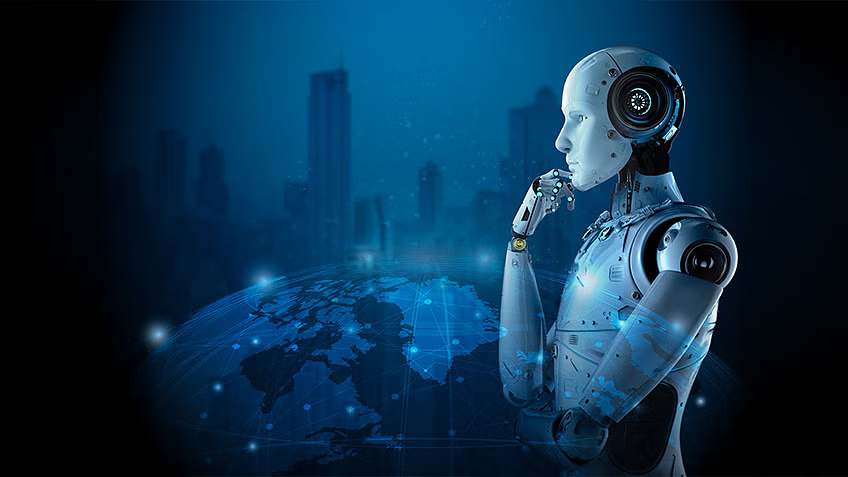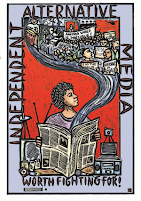From the moment I wake up, almost every day the first thing I do is reach for that rectangular object and turn on the screen to wake myself up. I might pull up a YouTube video or start playing a game on my phone to get myself awake. While I eat my breakfast, I watch more YouTube, and while I make my way to class, I listen to music. In a lot of the classes I attend, we either watch some slideshows or work on our laptops using Google Docs or in the case of my game design classes, work using game engines. Whenever I have free time, I'm most likely playing video games as it's my main hobby. Really, any day of my life won't just involve technology, but technology tends to instead be the main focus. Why does technology play such a large role in my life?
I grew up at a time when the iPhone was a brand new thing so I sort of got to see how smartphones and other new technologies made their way into the lives of the many people around me. That's not to say that technology wasn't already part of most people's lives at the time, as almost everyone watched television and maybe had a laptop or standard cell phone, but smartphones changed everything. At first, smartphones just seemed like phones with big touchscreens, but they quickly became more than that. Suddenly, you could play video games on your phone, watch TV shows and movies, and access the constantly growing internet just about anywhere. Throughout my time in elementary school, I wasn't allowed to bring my phone to school, or any devices for that matter, and the amount I used technology during a school day was limited. However, the moment middle school started, everyone had a phone on them, and so I was able to start bringing mine as well, my dad also gave me a data plan allowing me to finally connect to the internet wherever I was. Middle school also necessitated a need for laptops which the school provided, but eventually, I just started bringing my own. To think that in such a short amount of time, I went from rarely using technology in school to using it daily throughout the majority of the day is kind of insane.
When I compare how much I use technology today compared to a decade ago, I wonder why my usage has skyrocketed compared to then. Is it simply because I'm older and have both more freedom and a need to use technology or is it because technology has become so ingrained in our society? Even back in middle school, we didn't get our laptops until 7th grade, and my high school had only gotten outlets installed throughout the building a few years prior. Shopping used to be done almost entirely in person, and now it's done primarily online. Most jobs now require the use of technology, with some even getting entirely automated by technology as we saw with IN THE AGE OF AI. Times have clearly changed as we see technology everywhere we go to the point that it's almost unavoidable. To think there was a time in my life when I, and everyone else had no idea what Amazon was.
So why is it that technology is everywhere? Why has it become a massive part of our daily lives? One of the more obvious reasons is because of just how useful technology is. The invention of television allowed people to enjoy entertainment and get useful information like local and national news or the weather forecast all from the comfort of their own homes. Then of course smartphones came into the picture allowing access to what TV offered whenever you wanted and wherever you were, in addition to internet access and video games. Why go out to the store when you can order it? Who needs to hand wash dishes when I have a dishwasher? People wouldn't use all this technology if it didn't make life so much easier and more convenient. However, most of the examples I just gave are pieces of technology that we have willingly allowed into our lives. We purchased the TV, smartphone, dishwasher, etc. but what about the technology that entered our lives by force?
Everything has its pros and cons, and technology is no different. Take surveillance cameras for example. They're meant to keep us safe by keeping watch of our homes and businesses to help catch burglars and criminals. Plus, they can help you see if you've received a package or what your dog is doing in the backyard. Because of the many pros surveillance cameras offer, they can be found just about anywhere, from people's homes to public spaces like libraries and even parks. Now, everywhere you walk, everything you say or do can be recorded by someone. In most cases, the person who recorded the footage legally owns it and can choose who is allowed to see it. For example, if someone has confidential information recorded by their cameras, they have the right to withhold that information. Local law enforcement can record and withhold footage taken in public spaces as well and whether or not we should be able to access that footage is still being argued. Personally, I don't like the fact that I could unknowingly be recorded at any time and then not have the ability to access footage of myself.
Of course, the examples of useful technology I gave earlier also have their pros and cons. TVs, smartphones, and dishwashers can be expensive to use, as they affect your electricity bill. Staring at screens all day can have harmful long-term effects on your health, and yet we still use these devices daily. For most of us, the pros outweigh the cons, at least with the technology we willingly use. I'm sure many of us don't want AI to take over our lives, but if it's useful, it's going to be used. Personally, I'm alright with AI being a part of something if it's an objective improvement. At the moment, I don't think AI has a place in entertainment, at least not as a replacement for humans. Still, if the growth of smartphones is anything to go by, I believe we're going to start seeing AI pop up in a lot more places within the next decade, especially with how much it's already grown.
Overall, technology is and will continue to be a huge part of my life, and many other's lives for the foreseeable future. It seems as though it's been permanently integrated into our lives with its use in education and general everyday life. Technology will only continue to grow with new technologies like AI as it continues to try and improve our lives. Still, there are dangers that come with every new piece of tech, but every new invention comes with its own downsides. Hopefully, these dangers can be minimized so our lives can continue to improve. I don't dislike technology. With how often I use it it would be strange if I did. I just hope it continues to be more of a positive thing than a negative one because I really can't see how I could remove technology from my life with just how prevalent it is.


















